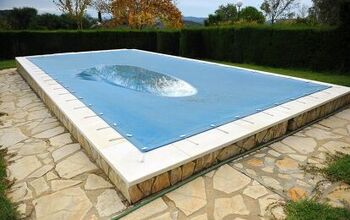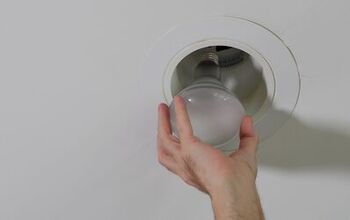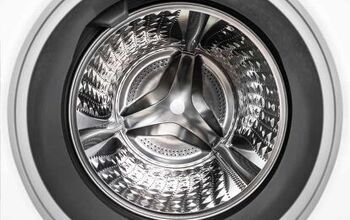What To Do If There Is A Snake In The Pool

Swimming pools offer a fun escape that let you cool off on hot summer days. However, it’s hard to have fun or feel safe in a pool when you find a snake. Understandably, many homeowners don’t know what to do if there is a snake in the pool.
Carefully catch the snake with a net if it gets stuck in the pool, then put it in the grass or woods far from your home. You can also put a critter ramp in your pool, so the snake can easily climb out of the water before the chlorine kills it. Otherwise, you can call a pest control service to catch the snake if you aren’t comfortable with it.
Natural solutions like clove, garlic oil, and even lemongrass can help keep snakes away from your pool. Otherwise, routine lawn maintenance can help keep your yard and pool free of snakes. Follow along as we explore what to do if a snake is in the pool.
Can Snakes Survive In A Swimming Pool?
Snakes cannot survive in swimming pools for long periods. Chlorine is toxic to many animals, and that includes snakes. Sadly, snakes get stuck in pools when they search for food and water, and they often can’t get out.
It’s hard for snakes to get out of pools because they can’t typically climb over the ladders and stairs. Granted, tree-dwelling snakes can climb, but chlorine toxicity often weakens them to where they can’t escape.
How To Remove A Snake From Your Pool
1. Catch It With A Net
The easiest way to remove a snake from your pool is to catch it with a net. It may take a while, as the water and net may overstimulate the snake. This makes them resist the net and swim away from it in many cases.
It helps to have a helper with you, so you can both use nets to make it easier to catch the snake. That said, you should only catch the snake with a net if it’s a common, nonlethal breed. Otherwise, harmful snakes like copperheads can potentially bite you and send you to the hospital.
2. Set Up A Ramp
Snakes don’t want to stay in your pool, and they’ll do anything they can to get out. You can make it much easier for the snake to escape if you set up an animal ramp. Critter escape ramps make it easy for snakes and frogs to get out of swimming pools before the chlorine hurts them.
You may still need to help the snake get out if they struggle to get on the ramp. Try your best to steer the snake toward the ramp from behind with a net. Keep your distance, so you don’t overwhelm the snake, and they should get onto the ramp.
3. Collect It In The Skimmer
There’s a good chance that the snake will eventually make its way to the skimmer basket. In that case, you can simply pull the basket out of the pool and let the snake go. However, you must be careful, as this makes it easy for the snake to bite you.
You can avoid getting bitten if you use a stick or hook to pull the basket out of the water. Move the basket far away from your home and let the snake go free. Otherwise, you can let the snake sit in the basket until pest control can pick it up, or sadly, until it dies.
4. Call A Professional
Many people understandably don’t want to handle snakes. After all, nobody wants to get bitten, and that’s why it’s a great idea to call a pest control service. Professionals know how to safely remove snakes without harming them.
Of course, some harm may be unavoidable if the snake has been exposed to chlorine for too long. Call a service right away when you find the snake if you are scared to remove it yourself. You can expect to spend between $130 and $350 when you hire professionals to remove a snake from a pool.
How To Keep Snakes Away From Your Pool
Use Natural Repellents
Store-bought snake repellent is quite effective, but household items like mint oil and garlic are also potent. Snakes despise the smell of garlic, mint, and cinnamon oil, so you can use them to your advantage. You can even scatter cedar chips throughout your yard to keep snakes away from your pool.
Some homeowners mix clove oil, cinnamon oil, and garlic in a spray bottle to make DIY snake repellent. Simply dilute it with water and spray it around the perimeter of your yard. Make sure to look up whether the ingredients you use are safe for pets if you have them.
Keep Your Grass Short
Snakes love tall grass because it provides plenty of cover for them. After all, snakes are predators, and tall grass makes it easy for them to hunt their prey. You can make your yard and swimming pool less appealing to snakes if you regularly mow your lawn.
Snakes are less likely to get in your pool if the surrounding grass is short and neat. You may also want to remove nearby bushes if they’re too close to your pool.
Get Strategic With Plants
Snakes are picky when it comes to plants, and they avoid plants that they find unappealing. You can use this to your advantage and fill your yard with plants that will keep snakes away. Everything from marigolds and garlic to mugwort and lemongrass can repel snakes.
Sage and basil also deter snakes, and they are among the easiest herbs to grow at home. Many types of cacti also repel snakes, but you must be careful with placement if you have pets.
Use Repellent Granules
Today, it’s easy to find snake-repellent granules that help keep snakes away from your pool. These granules are easy to scatter around your yard. However, it’s important to focus on areas where snakes typically enter your yard.
For example, it helps to scatter the granules near the tree line or fence, if that’s where they usually get in. Many snake-repellent granule products are safe for dogs and outdoor cats, but you must read the label. Avoid putting the granules on plants, as some brands are harmful to plants.
Summing It Up
Try to catch the snake with a net if it falls into your pool and gets stuck. You can also wait for it to get in the skimmer basket and remove the basket. However, it’s a great idea to call a pest control service if you haven’t had this happen before and are nervous about the snake. Use natural repellents like garlic and clove oil to keep snakes away from your pool and out of your yard.
Related Guides:

Nick Durante is a professional writer with a primary focus on home improvement. When he is not writing about home improvement or taking on projects around the house, he likes to read and create art. He is always looking towards the newest trends in home improvement.
More by Nick Durante



























